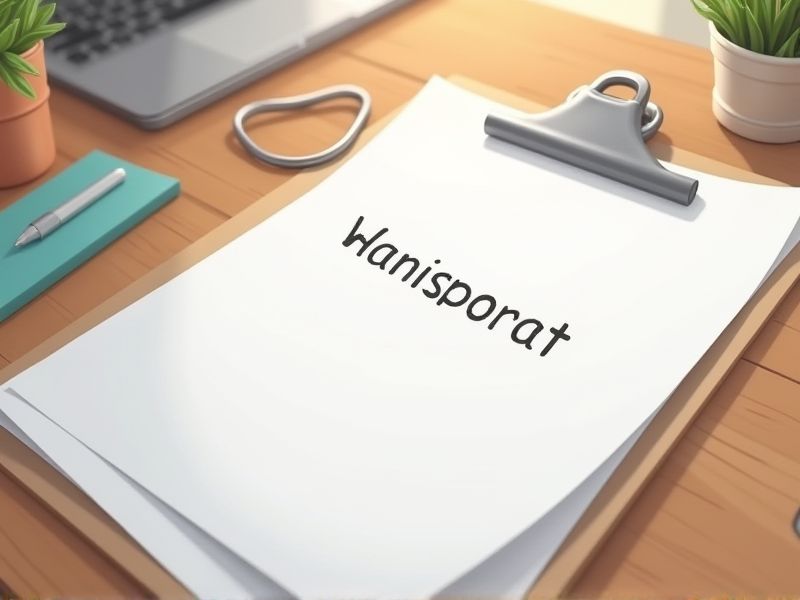
Veterinary Health Inspectors play a critical role in ensuring the welfare of animals and maintaining public health standards. Their responsibilities require specific skills and knowledge to evaluate animal health facilities, assess livestock conditions, and ensure compliance with legal regulations. Without proper certifications, these professionals might lack the authority or expertise to perform comprehensive inspections. Below are some important certifications that Veterinary Health Inspectors may need.
State Veterinary Medical License
A State Veterinary Medical License ensures that a Veterinary Health Inspector has the necessary expertise and meets standardized educational requirements for the profession. Without this license, there is no formal assurance of their competency to inspect and evaluate animal health accurately. The license provides legal authority to practice and helps regulate the profession, promoting public trust and safety. Holding a license also enables inspectors to enforce health standards effectively and take corrective action when necessary.
USDA Veterinary Inspector Certification
The USDA Veterinary Inspector Certification is necessary for ensuring veterinarians have the requisite knowledge and skills to protect public and animal health effectively. This certification standardizes practices across different regions, promoting uniformity in health inspections and disease control. It plays a crucial role in verifying that veterinary health inspectors can competently address biosecurity and food safety concerns. The rigorous certification process helps prevent outbreaks by ensuring inspectors are adept at identifying and managing animal diseases.
Certified Veterinary Health Inspector (CVHI)
The role of a Certified Veterinary Health Inspector (CVHI) ensures adherence to public health standards, which can lead to a reduction in the spread of zoonotic diseases. By having the certification, inspectors gain specialized knowledge and skills, enhancing their ability to evaluate and maintain animal health. A CVHI can effectively assess and monitor facilities for compliance with regulatory requirements, ensuring safer environments for both animals and humans. This certification marks a commitment to continued professional development, which has been shown to improve inspection accuracy and efficiency.
Veterinary Public Health Certification
Veterinary Public Health Certification equips a Veterinary Health Inspector with essential knowledge about zoonotic diseases, which is critical for maintaining public safety. The certification enhances an inspector's ability to effectively monitor and enforce animal health regulations, ensuring compliance with health standards. It provides specialized skills in identifying risks at the interface of human and animal health, reducing the incidence of disease outbreaks. Possessing this certification assures credibility and expertise, influencing community trust and cooperation in public health initiatives.
HACCP Certification
HACCP certification is essential for Veterinary Health Inspectors as it ensures systematic identification and control of food safety hazards in animal products. By adhering to HACCP principles, inspectors can prevent contamination that may affect both animal and human health. Certification equips health inspectors with standardized procedures to effectively monitor and verify the safety processes implemented by facilities. Consistent application of HACCP protocols reduces the risk of foodborne illnesses, thereby protecting public health and maintaining consumer trust in veterinary health practices.
Certified Food Safety Professional (CFSP)
Veterinary Health Inspectors benefit from Certified Food Safety Professional (CFSP) qualifications because they ensure food safety standards are uniformly enforced in animal-related facilities. Knowledge from CFSP certification helps inspectors understand critical control points in food production, thus preventing zoonotic disease transmission. The certification equips inspectors with current industry practices and regulatory updates, safeguarding both animal and public health. It provides credibility and confidence to the public that facilities are inspected by highly trained professionals.
Good Manufacturing Practices (GMP) Certification
GMP certification ensures that veterinary products meet quality and safety standards, which prevents harmful products from reaching animals and potentially entering the food chain. It provides veterinary health inspectors with a framework to assess compliance, leading to consistent regulatory oversight across facilities. By following GMP guidelines, inspectors can more effectively monitor and reduce the incidence of disease outbreaks among animals. Certification fosters trust and confidence among stakeholders, including consumers and industry professionals, by demonstrating a commitment to quality in veterinary product manufacturing.
OSHA Safety Certification
OSHA Safety Certification is crucial because it equips veterinary health inspectors with the knowledge to identify and mitigate workplace hazards, reducing the risk of injury. Being certified ensures compliance with governmental regulations, which helps prevent legal penalties for both the inspector and their facility. Certification promotes a culture of safety, which directly correlates to increased efficiency and productivity within veterinary settings. Having OSHA-certified inspectors boosts confidence among employees and clients, knowing that safety standards are rigorously upheld.
Certified Environmental Health Inspector (CEHI)
Veterinary Health Inspectors often encounter environments where animal and human health intersect, requiring expertise in environmental health to assess potential risks. A Certified Environmental Health Inspector (CEHI) offers specialized knowledge in identifying and mitigating environmental hazards that can affect both animals and humans. CEHIs can ensure compliance with health regulations, thus preventing disease transmission and promoting public health safety. Their certification underscores a commitment to rigorous health standards, critical for maintaining the integrity of veterinary health inspections.
Animal Welfare Certification
Animal Welfare Certification equips Veterinary Health Inspectors with the necessary skills to assess and ensure the humane treatment of animals, which directly impacts their health and well-being. This certification provides a standardized framework for inspectors to evaluate living conditions and identify any violations of animal welfare laws. It enhances the credibility and authority of inspectors in enforcing regulations, fostering public trust in their assessments. Certified inspectors are better prepared to recommend measures that improve animal welfare, reducing instances of animal cruelty and neglect.
Summary
When you obtain relevant certifications, your credibility as a Veterinary Health Inspector significantly enhances. Certified inspectors tend to earn increased trust from both employers and clients. They often experience broader job opportunities and, consequently, career growth. This professional validation usually translates to improved inspection accuracy and compliance with health standards.
